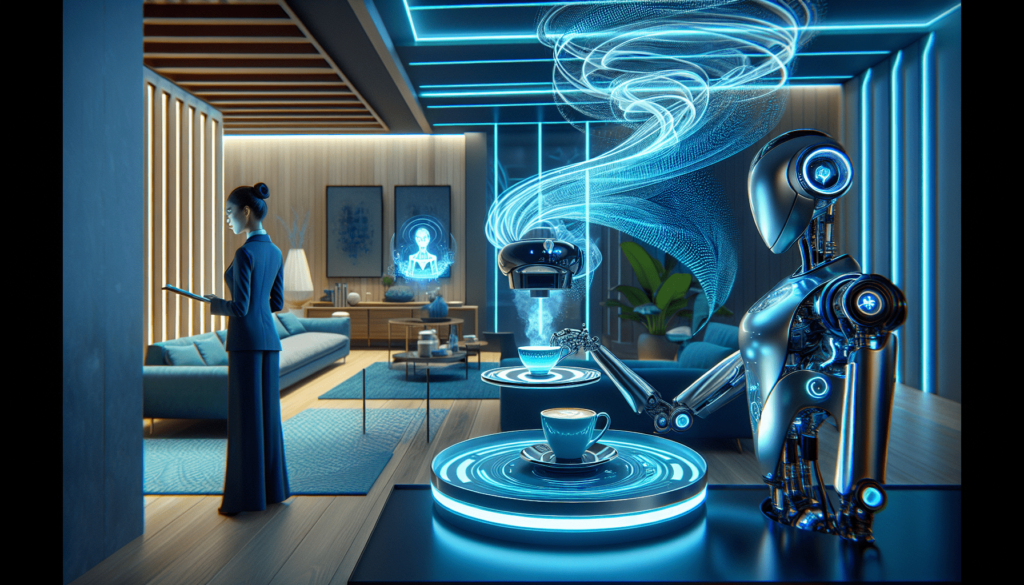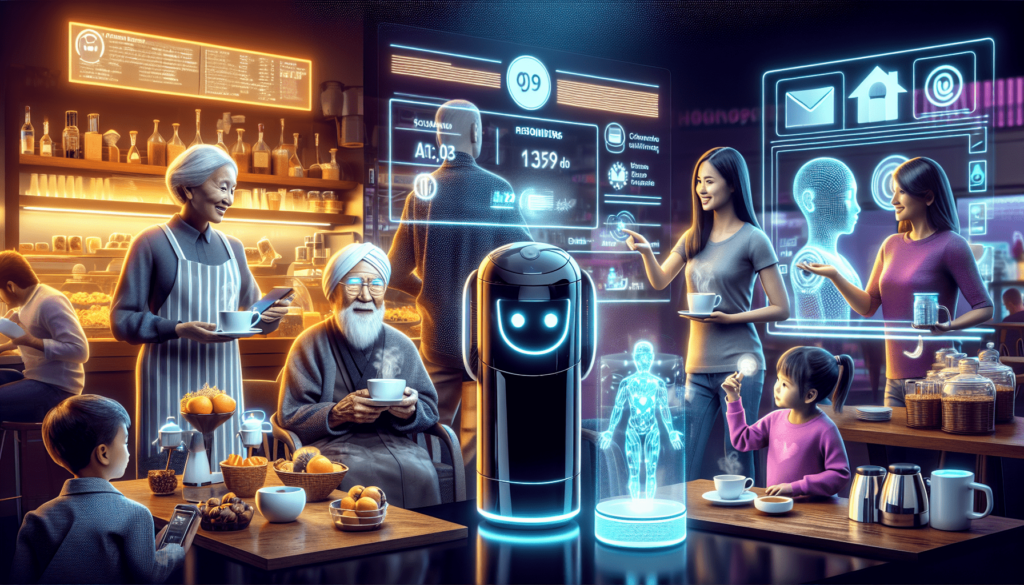What examples of AI do we use in daily life?
AI in Everyday Life
Artificial Intelligence, commonly known as AI, has become an integral part of our daily lives. From virtual assistants to personalized recommendations, AI technology has revolutionized the way we interact with the world around us. In this article, we will explore some examples of AI in everyday life that you may not even realize you are using.
Online Shopping
One of the most common examples of AI in everyday life is through online shopping platforms. When you browse a website like Amazon or eBay, AI algorithms are at work behind the scenes, analyzing your browsing history and purchase behavior to recommend products you may be interested in. These recommendations are based on machine learning algorithms that predict your preferences and tailor the shopping experience to your needs.
Social Media
Another example of AI in everyday life is through social media platforms like Facebook, Instagram, and Twitter. AI algorithms track your interactions, likes, and shares to show you content that is relevant to your interests. Additionally, AI is used in facial recognition technology to tag friends in photos and filter inappropriate content from your timeline.

Smart Home Devices
Smart home devices like Amazon Alexa, Google Home, and Apple HomePod are becoming increasingly popular in households around the world. These devices use AI to understand your voice commands, play music, set reminders, control smart appliances, and even order groceries online. AI technology allows these devices to learn from your habits and preferences, providing a personalized and intuitive user experience.
Navigation Apps
Navigation apps like Google Maps and Waze utilize AI algorithms to provide real-time traffic updates, alternate routes, and estimated arrival times. These apps analyze traffic patterns, road closures, and accidents to offer the most efficient route to your destination. AI technology is constantly updating and optimizing these routes based on user feedback and traffic data.

Healthcare
AI is revolutionizing the healthcare industry by improving patient care, diagnosis, and treatment options. AI algorithms can analyze medical data, detect patterns, and predict disease outbreaks. Additionally, AI-powered robots are assisting surgeons during complex procedures, increasing the success rates of surgeries and reducing recovery times. Virtual health assistants are also being used to schedule appointments, answer medical questions, and provide personalized healthcare recommendations.
Autonomous Vehicles
Self-driving cars are a prime example of AI in everyday life, with companies like Tesla, Waymo, and Uber leading the way in autonomous vehicle technology. These vehicles use AI algorithms to navigate roads, detect obstacles, and make split-second decisions to prevent accidents. While the development of self-driving cars is still in its early stages, AI technology is rapidly advancing to make this mode of transportation safer and more efficient.
Personalized Recommendations
Whether you are watching a movie on Netflix, listening to music on Spotify, or shopping online, AI algorithms are working in the background to provide personalized recommendations tailored to your preferences. These recommendations are based on your viewing history, music taste, or purchase behavior, allowing you to discover new content that you may enjoy. AI technology continuously learns and adapts to your preferences, providing an enhanced user experience.
Fraud Detection
AI technology is used in financial institutions to detect fraudulent activities and prevent identity theft. Banks and credit card companies use machine learning algorithms to analyze transactions, detect unusual spending patterns, and flag suspicious behavior. AI-powered fraud detection systems can identify potential threats in real-time, protecting your financial information and providing peace of mind.
Virtual Assistants
Virtual assistants like Siri, Google Assistant, and Cortana are examples of AI in everyday life that provide voice-activated capabilities to help you with tasks and answer questions. These virtual assistants use natural language processing and machine learning algorithms to understand and respond to your voice commands. Whether you need to set a reminder, find a recipe, or check the weather, virtual assistants can assist you in various tasks throughout the day.
Customer Service
AI technology is also being used in customer service to provide instant support and personalized experiences. Chatbots powered by AI algorithms can answer FAQs, resolve issues, and provide recommendations based on your needs. These chatbots are available 24/7, allowing you to get assistance at any time without having to wait in line or speak to a human agent. AI-driven customer service is transforming the way companies interact with their customers, making the experience more efficient and convenient.
In conclusion, AI technology has permeated almost every aspect of our daily lives, enhancing convenience, efficiency, and personalization. From online shopping to healthcare to autonomous vehicles, AI is revolutionizing the world around us. By understanding the examples of AI in everyday life, you can appreciate the impact of this technology on society and how it continues to shape our future.
